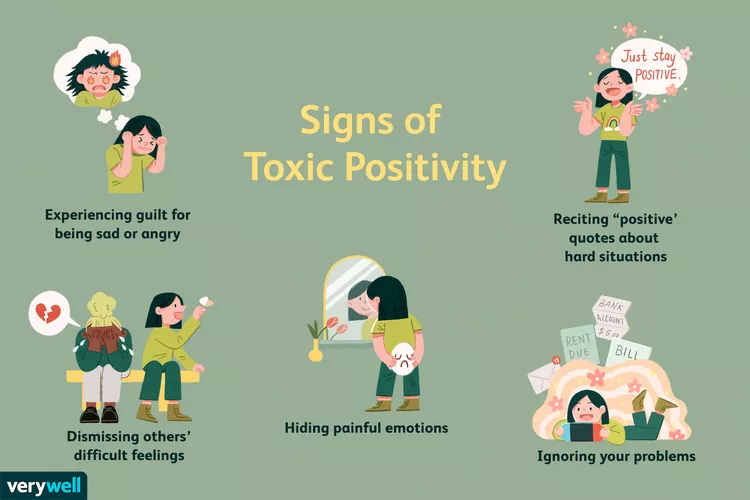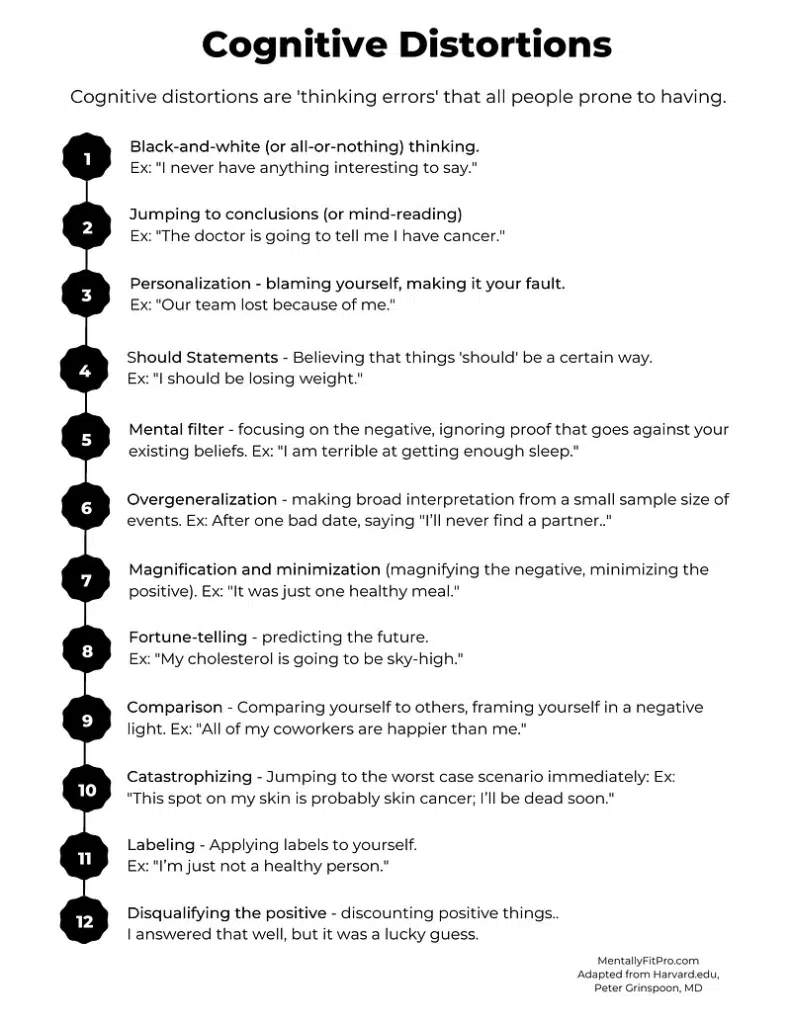Good vibes only! Don’t worry, it’ll all work out. Everything happens for a reason. Look on the bright side! Count your blessings. And my personal favorite: happiness is a choice.
Do you know someone who’s always touting these phrases? Who always seems to say only positive things regardless of circumstances. Such statements are often well-intentioned, or people just don’t know what else to say and don’t know how to be empathetic.
This is toxic positivity. Toxic positivity is the idea that, regardless of how tough or challenging a situation may be, people should always maintain a positive mindset. Although having an optimistic outlook and practicing positive thinking can be beneficial, toxic positivity goes to the extreme of rejecting any difficult emotions in favor of putting on a consistently cheerful and sometimes falsely-positive front.

It’s good for your mental well-being to view life positively. However, the issue arises because life is not always filled with positivity. We all go through painful emotions and experiences. These emotions, although often unpleasant, should be acknowledged and addressed openly and honestly to foster acceptance and improve psychological well-being.
Toxic positivity represents an exaggerated form of positive thinking. It not only emphasizes the importance of optimism but also downplays and sometimes denies any expression of human emotions that deviate from strictly happy or positive feelings.
Excessive positivity can be harmful since it negatively affects individuals going through tough times. Instead of being able to express authentic human emotions and receive unconditional support, those encountering toxic positivity often experience their feelings being brushed off, overlooked, or outright rejected.
Toxic positivity can lead to feelings of shame, telling individuals that the emotions they are experiencing are unacceptable. When someone is going through a tough time, it’s crucial for them to feel that their emotions are valid and that they can seek solace and support from friends and family. Additionally, toxic positivity induces guilt by implying that not finding a way to stay positive, even in the midst of tragedy, is a wrongdoing.
This behavior serves as a means of avoiding genuine human emotion. People who engage in toxic positivity tend to sidestep uncomfortable emotional situations, sometimes even internalizing these attitudes. When faced with challenging emotions, they may discount, dismiss, or deny them. Unfortunately, this avoidance hinders personal growth by preventing individuals from confronting potentially painful feelings that can ultimately lead to profound insight.
The “positive vibes only” mantra can be particularly frustrating during times of intense personal distress, such as financial troubles, job loss, illness, or the loss of a loved one. It can come across as insensitive and cruel to tell someone in such situations to focus on the bright side. Some even liken toxic positivity to gaslighting, as it creates a false narrative of reality, making individuals question their thoughts and feelings.

In more severe cases, toxic positivity may be considered abusive. Abusive individuals might use it to devalue, dismiss, and minimize another person’s emotions and experiences, even downplaying the severity of their own abusive actions. At its best, toxic positivity appears as superficial expressions that allow individuals to avoid dealing with others’ feelings. At its worst, these comments can induce feelings of shame and blame in people grappling with incredibly challenging situations.
If you notice toxic positivity tendencies in yourself, there are steps you can take to cultivate a healthier and more supportive approach. Embrace the mindset that “it’s okay not to be okay.” Rather than thinking it’s wrong to experience negative feelings, acknowledge that it’s unrealistic to be okay all the time. Remind yourself that feeling not okay is perfectly acceptable for anyone.
While it’s important to manage negative emotions to avoid unnecessary stress, it’s equally crucial not to deny them. Negative emotions, though sometimes challenging, can offer valuable insights that lead to positive changes in various aspects of your life.
Prioritize listening to others and providing genuine support. Instead of shutting someone down with toxic positivity when they express difficult emotions, convey that what they’re feeling is normal, and assure them that you’re there to listen and support them. This approach fosters a more empathetic and understanding connection.
Toxic positivity can be quite understated, and most of us have likely fallen into this mindset at some point. However, gaining the ability to identify it allows you to break free from this way of thinking and offer or accept more genuine support during challenging times.
Begin by paying attention to statements that reflect toxic positivity, and make an effort to allow yourself and others to express a full range of emotions—both the positive and the negative. This awareness helps create a space where authentic feelings can be acknowledged and embraced, fostering more meaningful connections and support when facing difficult situations.
